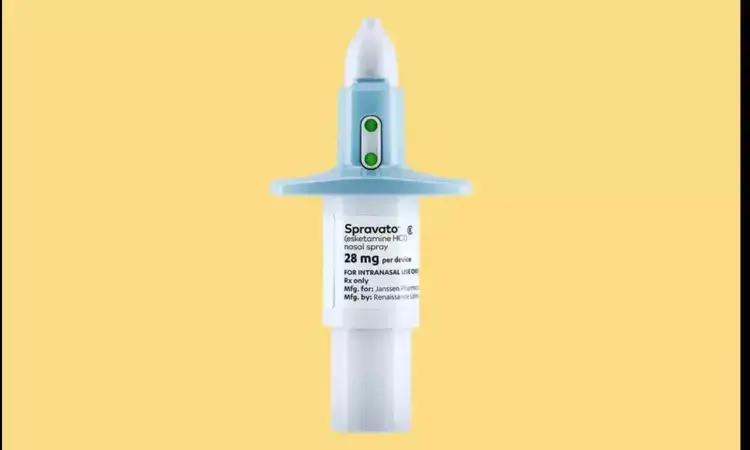- Home
- Medical news & Guidelines
- Anesthesiology
- Cardiology and CTVS
- Critical Care
- Dentistry
- Dermatology
- Diabetes and Endocrinology
- ENT
- Gastroenterology
- Medicine
- Nephrology
- Neurology
- Obstretics-Gynaecology
- Oncology
- Ophthalmology
- Orthopaedics
- Pediatrics-Neonatology
- Psychiatry
- Pulmonology
- Radiology
- Surgery
- Urology
- Laboratory Medicine
- Diet
- Nursing
- Paramedical
- Physiotherapy
- Health news
- Fact Check
- Bone Health Fact Check
- Brain Health Fact Check
- Cancer Related Fact Check
- Child Care Fact Check
- Dental and oral health fact check
- Diabetes and metabolic health fact check
- Diet and Nutrition Fact Check
- Eye and ENT Care Fact Check
- Fitness fact check
- Gut health fact check
- Heart health fact check
- Kidney health fact check
- Medical education fact check
- Men's health fact check
- Respiratory fact check
- Skin and hair care fact check
- Vaccine and Immunization fact check
- Women's health fact check
- AYUSH
- State News
- Andaman and Nicobar Islands
- Andhra Pradesh
- Arunachal Pradesh
- Assam
- Bihar
- Chandigarh
- Chattisgarh
- Dadra and Nagar Haveli
- Daman and Diu
- Delhi
- Goa
- Gujarat
- Haryana
- Himachal Pradesh
- Jammu & Kashmir
- Jharkhand
- Karnataka
- Kerala
- Ladakh
- Lakshadweep
- Madhya Pradesh
- Maharashtra
- Manipur
- Meghalaya
- Mizoram
- Nagaland
- Odisha
- Puducherry
- Punjab
- Rajasthan
- Sikkim
- Tamil Nadu
- Telangana
- Tripura
- Uttar Pradesh
- Uttrakhand
- West Bengal
- Medical Education
- Industry
Esketamine Nasal Spray Shown to Reduce Anhedonia in Treatment-Resistant Depression: Study

Researchers have found in a new study that repeated esketamine nasal spray use improved anhedonia in patients with unipolar and bipolar depression, independent of overall symptom changes. These findings highlight the potential of esketamine to target one of the most disabling symptoms of depression, which often persists despite standard treatment.
The study enrolled patients diagnosed with treatment-resistant depression who had not responded to at least two prior antidepressant therapies. Participants received esketamine nasal spray alongside standard-of-care treatment in a structured clinical setting. Anhedonia was assessed through validated self-report measures and clinician-administered scales over the course of treatment.
Results showed that esketamine led to significant and sustained reductions in anhedonia scores compared to baseline, even in cases where overall depression severity showed slower or less dramatic improvement. This suggests that esketamine may have a direct effect on the neural pathways underlying reward processing, which are often impaired in treatment-resistant depression.
Anhedonia—defined as the inability to feel pleasure—is recognized as a core symptom of major depressive disorder and bipolar depression. It is strongly linked to poorer prognosis, higher suicide risk, and functional impairment. Traditional antidepressants, while effective for mood symptoms, often fail to adequately address anhedonia.
Esketamine, a glutamate receptor modulator derived from ketamine, has already been approved for treatment-resistant depression due to its rapid antidepressant effects. The current findings expand on this by suggesting that esketamine could offer a novel therapeutic option specifically for patients whose primary challenge is persistent anhedonia.
The authors cautioned that while the results are promising, further research is needed to determine the long-term durability of these effects, the optimal dosing strategy, and whether esketamine’s benefits extend to broader patient populations. Still, this study provides encouraging evidence that targeting glutamatergic pathways could represent a major advance in managing difficult-to-treat depression symptoms.
Reference:
[Authors]. (2025). Esketamine nasal spray reduces anhedonia in treatment-resistant unipolar and bipolar depression: A clinical study. Journal/Source. https://doi.org/xxxx
Dr. Shravani Dali has completed her BDS from Pravara institute of medical sciences, loni. Following which she extensively worked in the healthcare sector for 2+ years. She has been actively involved in writing blogs in field of health and wellness. Currently she is pursuing her Masters of public health-health administration from Tata institute of social sciences. She can be contacted at editorial@medicaldialogues.in.
Dr Kamal Kant Kohli-MBBS, DTCD- a chest specialist with more than 30 years of practice and a flair for writing clinical articles, Dr Kamal Kant Kohli joined Medical Dialogues as a Chief Editor of Medical News. Besides writing articles, as an editor, he proofreads and verifies all the medical content published on Medical Dialogues including those coming from journals, studies,medical conferences,guidelines etc. Email: drkohli@medicaldialogues.in. Contact no. 011-43720751


